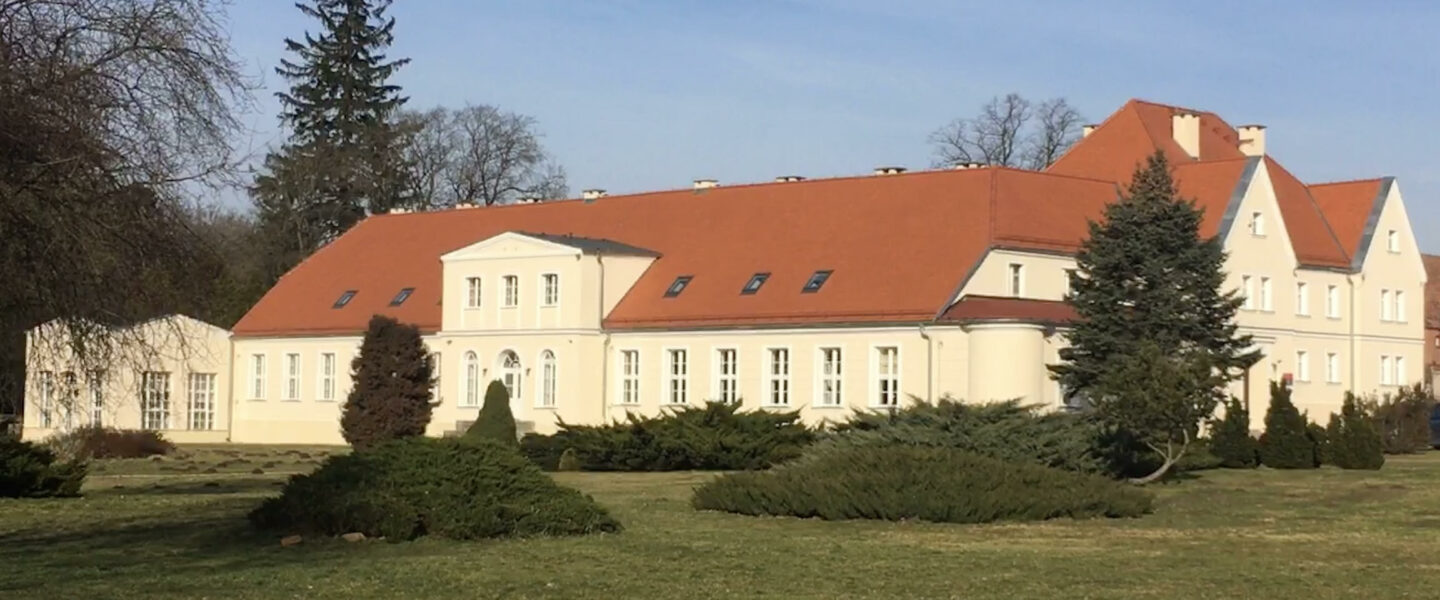
International Center for Interdisciplinary Studies of the University of Szczecin, Kulice, Poland
EKA co-organizes an international interdisciplinary spring school on 10–15 March 2024 in Kulice, Poland.
The understanding of heritage as purely preserving and managing the remains of cultural/national value has been increasingly disputed during the last decades. The approach of multidirectional memories (Michael Rothberg), critical heritage (Sharon Macdonald, Rodney Harrison), and post-colonial studies have each shifted this understanding towards broader definitions of heritage as a negotiation of social and cultural participation. Furthermore, the events of the Black Lives Matter movement and the ongoing war in Ukraine shed light on previously excluded aspects of heritage, on the one hand, and the growing refusal of certain monuments, on the other. It is precisely in this regard that concepts such as unwanted, uncomfortable, contested, or dissonant heritage and related practices of adaptation, disremembering, loss, destruction, and/or decay expand into research.
Our Spring School is focusing on the notion of uncomfortable heritage, by which we mean monuments, objects, and sites whose status has become uncertain and contested due to political upheavals and political, cultural, or social transformation processes. This could sometimes even mean that monuments that were previously seen as heritage are excluded from that category. Scrutinizing these categories will provide a productive approach to discuss concepts and practices of heritage. Uncomfortable or unwanted heritage is thereby perceived not only as a reverse side of common heritage practices but also as an expression of the re-semanticization of memory cultures, as demonstrated by Aleida Assmann’s nine techniques of disremembering (delete, cover up, hide, silence, overwrite, ignore, neutralize, deny, lose).
Therefore, we want to explore objects, places, practices, narratives, legal and institutional frameworks, and communities that consider processes of violence, threat, ignorance, or destruction as a way of identity building, empowerment, and re-interpretation with a focus on the Baltic Sea Region – but not limited to it. This region has been shaped by numerous upheavals and antagonistic memories historically, which oscillate between ‘official’ memory cultures on the one hand, and various heritage communities, including indigenous cultures and dissident groups on the other hand. In addition, the commemoration of the Second World War and the Cold War is of particular relevance in all societies around the Baltic Sea. This includes the museums and sites of the Holocaust, but also military, scientific, and industrial legacies from the post-war era, various historical monuments, or intangible heritage of indigenous or religious groups.
The Spring School aims to understand forgetting, destroying, sorting out, re-evaluating, or decaying unwanted, uncomfortable, or contested legacies as a complex entanglement of social, legal, and cultural re-evaluation. Therefore, we are interested in what is considered and perceived as uncomfortable heritage in certain contexts. What is its specific temporality? How are these processes presented and framed in the media and narratives? How are the material legacies dealt with? We intend to explore the political, cultural, and historical dimensions of this process through three thematic lenses:
- post-colonial dimensions and related practices/actions of destroying and visibility;
- post-war dimensions (including post-Cold War upheavals);
- industrial remains.
During the Spring School, we want to discuss the various processes connected to heritage and heritage making in the Baltic Sea Region under different perspectives and scrutinize theoretical approaches. This is not to construct a common narrative but rather to critically investigate the meanings and potentials of cultural heritage in today’s Europe.
Course outline:
The 5-day English-language Spring School will be held in the former manor in Kulice, near Szczecin. It includes workshops, reading seminars, and an excursion. The Spring School is addressed to early career researchers, PhD students, or MA students shortly before their graduation (ca. 15 altogether), who focus either on concepts of heritage or on topics of identity and monuments on a theoretical level.
Participants will be able to present and discuss their research project in an interdisciplinary framework. Experts in the respective fields will provide impulse lectures and introduce theoretical and methodological frameworks as well as specific case studies. The Spring School thus seeks to offer inspiring academic exchange that may lead to new networks and perspectives.
The discussions and students’ project presentations are complemented by fieldwork, investigating uncomfortable heritage on-site. During the field trip, the close examination of nearby tangible monuments allows to critically debate the different points of view and become aware of the variety within the wider Baltic Sea region, on the basis of which group presentations will be prepared to apply the discussed approaches and methods.
Link to the PROGRAMME.
Practicalities:
We invite applications from students from the states of the Baltic Sea Region and Ukraine. Applicants need to be enrolled as an MA or PhD student in a relating field (History, Art History, Architecture, Archaeology, Museology, Heritage Conservation, Heritage Studies, Memory Studies, Cultural Studies, German Studies etc.). Presentation proposals can (but need not) be connected to the topic of the participant’s thesis.
The organizers of the Spring School will cover the accommodation and participation costs, and support travel to Kulice. Successful participation amounts to 5 ECTS points.
Applications including a presentation abstract, a motivation letter, and a CV (max. 3 pages altogether) should be sent to antje.kempe@uni-greifswald.de. The deadline for applying is 15 December 2023.
The Spring School will be held at the International Center for Interdisciplinary Studies of the University of Szczecin in Kulice, situated in a 19th-century manor house, once belonging to the Bismarck family, but acting as a conference center since 1995 (http://kulice.usz.edu.pl).
The Spring School is organized in cooperation with Böckler-Mare Balticum-Foundation and the Council of Baltic Sea States, and supported by the German Federal Ministry of Education and Research.
For more information, please contact antje.kempe@uni-greifswald.de.
Organizers:
University of Szczecin, MOBI (Prof. Jörg Hackmann), lead organizer
University of Greifswald, IFZO (Dr. Antje Kempe), lead organizer
European University Viadrina, Frankfurt/Oder (Prof. Paul Zalewski)
Technical University of Berlin (Prof. Stephanie Herold)
Estonian Academy of Arts, Tallinn (Dr. Kristina Jõekalda)
